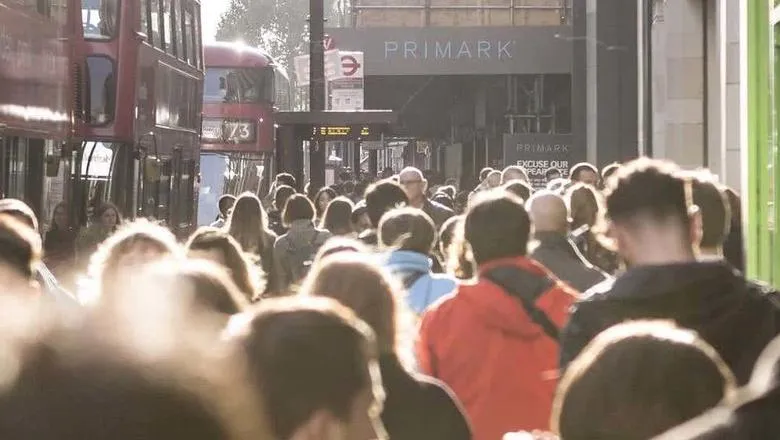
Professor Jayati Das-Munshi
Professor of Social & Psychiatric Epidemiology
- Honorary Consultant Liaison Psychiatrist
Biography
Jayati Das-Munshi is Professor of Social & Psychiatric Epidemiology, Honorary Consultant Liaison Psychiatrist, at the Institute of Psychiatry, Psychology & Neuroscience at King's College London.
She is an academic psychiatrist and epidemiologist whose work focuses on mental health inequalities and their social determinants.
She holds a Chair in Social & Psychiatric Epidemiology at King’s College London and is Co-Director of the UKRI-funded Population Health Improvement UK, Population Mental Health Consortium. She also co-leads the ESRC Centre for Society and Mental Health platform on cohorts and statistics.
Her previous research has been supported by fellowships from the Medical Research Council and a prior Clinician Scientist Fellowship (Academy of Medical Sciences/ Health Foundation), and she is a Fellow of the Royal College of Psychiatrists.
She has particular expertise in large-scale longitudinal data and led one of the first linkages of national census data to electronic health records in England, advancing research on inequalities and severe mental illness.
Her research focuses on the social and structural drivers of mental illness, ethnic and racial inequalities in health, the links between physical and mental health across the life course, and the impact of the COVID19 pandemic on inequalities in people with mental health conditions.
Her work has informed guidelines and initiatives led by the World Health Organization, UK government departments, and the United Nations, where she has contributed in expert advisory roles.
Alongside her academic work, Professor Das-Munshi is a practicing consultant psychiatrist in palliative care at St Christopher’s Hospice. She has published widely in the field and contributes to national efforts aimed at reducing health inequalities and improving outcomes for people living with mental health conditions.
Research

Social and Economic Predictors of the Severe Mental Disorders: The SEP-MD Data Linkage Study
Linking health records and census data to advance understanding of mortality, in-patient admissions and worklessness among people with severe mental illness.
Project status: Ongoing

Urban Data Science
Supporting interdisciplinary research and innovation in and for London

COVID-19 Ethnic Inequalities in Mental health and Multimorbidities: COVE-IMM study
Informed by perspectives of people with lived experience, this study has explored how the COVID-19 pandemic has exacerbated ethnic health inequalities
Project status: Completed

Population Mental Health Consortium
UK network to boost the role of research and the use of data to improve population health focused on children and young people, suicide and self-harm prevention and multiple long-term conditions.
News
Inequalities in mental health compulsory admissions worsened during the pandemic: Researchers call for Mental Health Act reforms
New research from the Institute of Psychiatry, Psychology & Neuroscience (IoPPN) and South London and Maudsley NHS Foundation Trust has shown striking...

Londoners to receive £1.5m National Lottery Community Fund boost for climate action and mental wellbeing
Thanks to National Lottery players, a new London Mental Health and Climate Coalition has received £1,499,958 over three years from The National Lottery...

Population Mental Health workshop pinpoints projects to address mental health and the built environment
Workshop brought together researchers, voluntary organisations, industry partners and the public to seed-fund projects in population mental health

Living alone is linked to poor health and unemployment amongst those with severe mental illness, study finds
New research from the Institute of Psychiatry, Psychology & Neuroscience (IoPPN) at King’s College London has shown that over three quarters of people with...

A Life Less Safe: telling the real stories of health inequities through research and film
Two new studies and an accompanying short film have described the experiences of racially minoritised groups with physical and mental health conditions...

People with severe mental illness more than four times as likely to die from pneumonia compared to the general population
New research suggests that people with severe mental illness face an increased risk of death due to infectious disease.

New £7M research investment to investigate population-based improvement of mental health
£7 million funding from UK Research and Innovation, has been awarded to lead partner King’s College London to establish a research theme in Population Mental...

Applications open for three new studentships at the ESRC Centre for Society and Mental Health
The ESRC Centre for Society and Mental Health invite prospective students to apply for new studentships aligned with its key research areas, with a focus on...

Researchers call for better integration of mental health and alcohol services among minority ethnic groups
New research shows the association between alcohol use and mental health differs across minority ethnic groups, and provides insight into people’s reasons for...

People with severe mental illness at 50 per cent higher risk of death following COVID-19 infection
New research from King’s College London has found that people in the UK with severe mental illness were at increased risk of death from all causes following...

Events

A Life Less Safe: invitation to a special screening at Brixton Ritzy
A film exploring the experiences of Black and other racially minoritised people living with severe mental health conditions during Covid-19.
Please note: this event has passed.

Ethnic Inequalities in Healthcare for people with multiple long-term conditions
Panelists will be discussing recent research and policy implications around ethnic inequalities in healthcare and care quality among people with multiple...
Please note: this event has passed.
Features
Bringing data together to understand employment, disability and health among people with severe mental illness
People from racialised minority groups diagnosed with severe mental illnesses may face greater social inequities, leading to worse outcomes following...

The story of the SEP-MD study: Why link data?
In this blog, the SEP-MD study team highlight the importance of their innovative project linking mental health hospital records with Census data.

Research

Social and Economic Predictors of the Severe Mental Disorders: The SEP-MD Data Linkage Study
Linking health records and census data to advance understanding of mortality, in-patient admissions and worklessness among people with severe mental illness.
Project status: Ongoing

Urban Data Science
Supporting interdisciplinary research and innovation in and for London

COVID-19 Ethnic Inequalities in Mental health and Multimorbidities: COVE-IMM study
Informed by perspectives of people with lived experience, this study has explored how the COVID-19 pandemic has exacerbated ethnic health inequalities
Project status: Completed

Population Mental Health Consortium
UK network to boost the role of research and the use of data to improve population health focused on children and young people, suicide and self-harm prevention and multiple long-term conditions.
News
Inequalities in mental health compulsory admissions worsened during the pandemic: Researchers call for Mental Health Act reforms
New research from the Institute of Psychiatry, Psychology & Neuroscience (IoPPN) and South London and Maudsley NHS Foundation Trust has shown striking...

Londoners to receive £1.5m National Lottery Community Fund boost for climate action and mental wellbeing
Thanks to National Lottery players, a new London Mental Health and Climate Coalition has received £1,499,958 over three years from The National Lottery...

Population Mental Health workshop pinpoints projects to address mental health and the built environment
Workshop brought together researchers, voluntary organisations, industry partners and the public to seed-fund projects in population mental health

Living alone is linked to poor health and unemployment amongst those with severe mental illness, study finds
New research from the Institute of Psychiatry, Psychology & Neuroscience (IoPPN) at King’s College London has shown that over three quarters of people with...

A Life Less Safe: telling the real stories of health inequities through research and film
Two new studies and an accompanying short film have described the experiences of racially minoritised groups with physical and mental health conditions...

People with severe mental illness more than four times as likely to die from pneumonia compared to the general population
New research suggests that people with severe mental illness face an increased risk of death due to infectious disease.

New £7M research investment to investigate population-based improvement of mental health
£7 million funding from UK Research and Innovation, has been awarded to lead partner King’s College London to establish a research theme in Population Mental...

Applications open for three new studentships at the ESRC Centre for Society and Mental Health
The ESRC Centre for Society and Mental Health invite prospective students to apply for new studentships aligned with its key research areas, with a focus on...

Researchers call for better integration of mental health and alcohol services among minority ethnic groups
New research shows the association between alcohol use and mental health differs across minority ethnic groups, and provides insight into people’s reasons for...

People with severe mental illness at 50 per cent higher risk of death following COVID-19 infection
New research from King’s College London has found that people in the UK with severe mental illness were at increased risk of death from all causes following...

Events

A Life Less Safe: invitation to a special screening at Brixton Ritzy
A film exploring the experiences of Black and other racially minoritised people living with severe mental health conditions during Covid-19.
Please note: this event has passed.

Ethnic Inequalities in Healthcare for people with multiple long-term conditions
Panelists will be discussing recent research and policy implications around ethnic inequalities in healthcare and care quality among people with multiple...
Please note: this event has passed.
Features
Bringing data together to understand employment, disability and health among people with severe mental illness
People from racialised minority groups diagnosed with severe mental illnesses may face greater social inequities, leading to worse outcomes following...

The story of the SEP-MD study: Why link data?
In this blog, the SEP-MD study team highlight the importance of their innovative project linking mental health hospital records with Census data.

